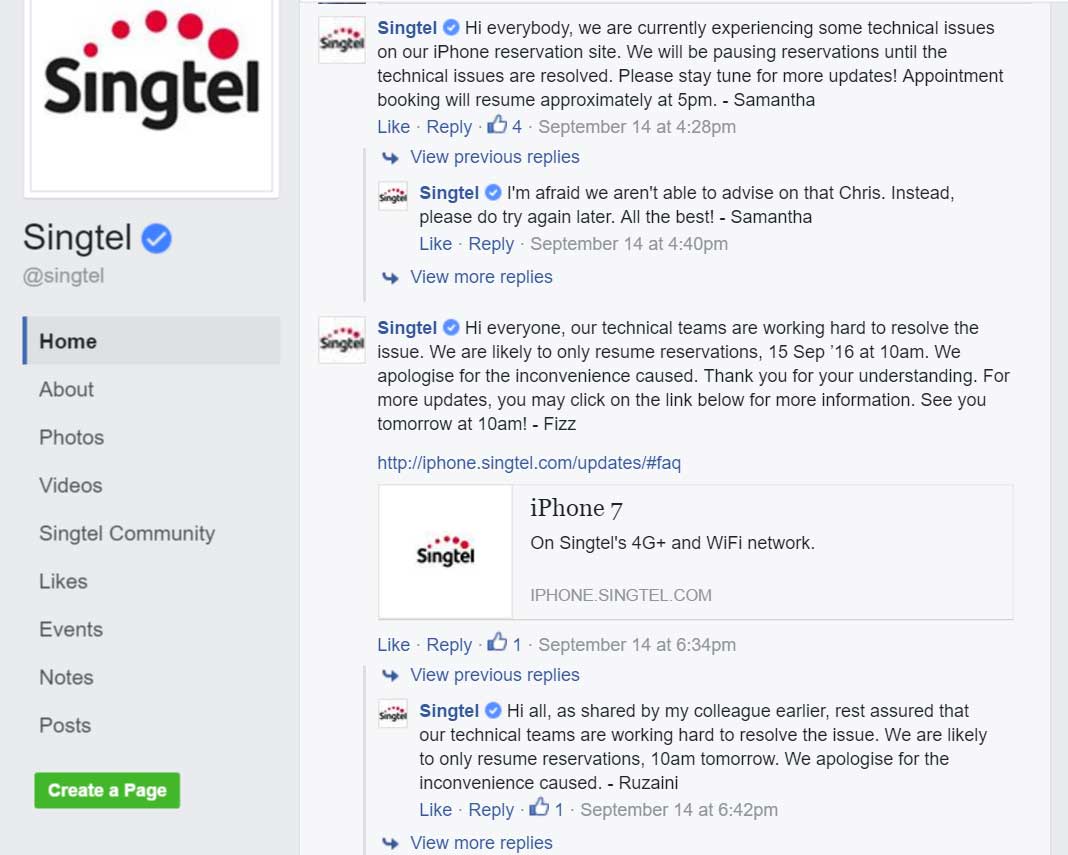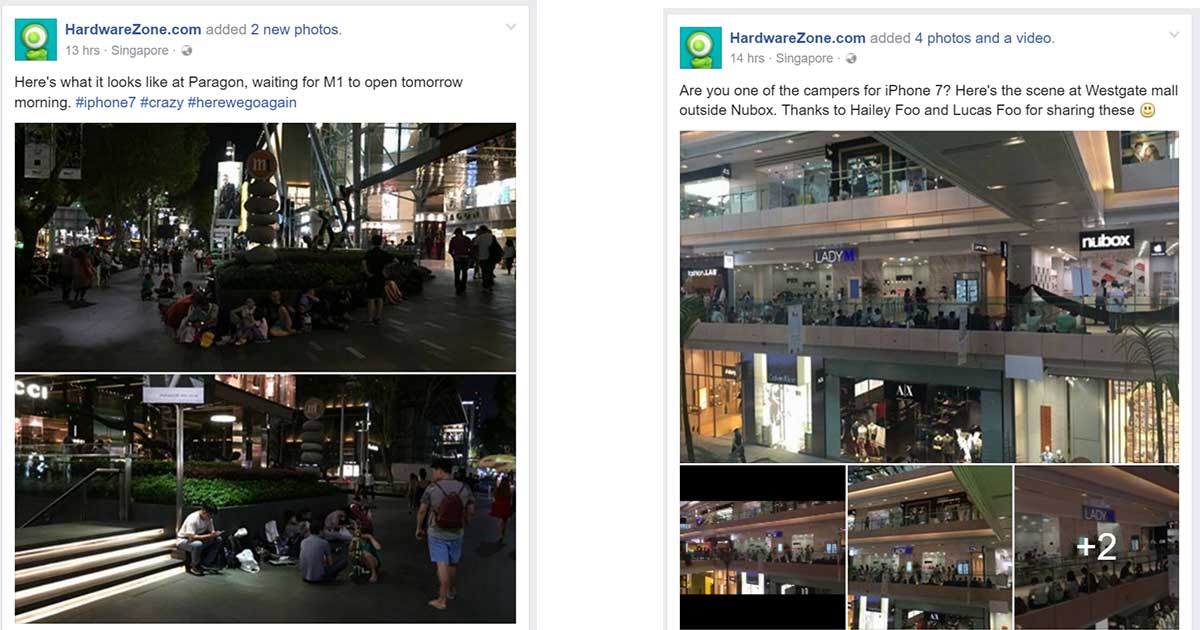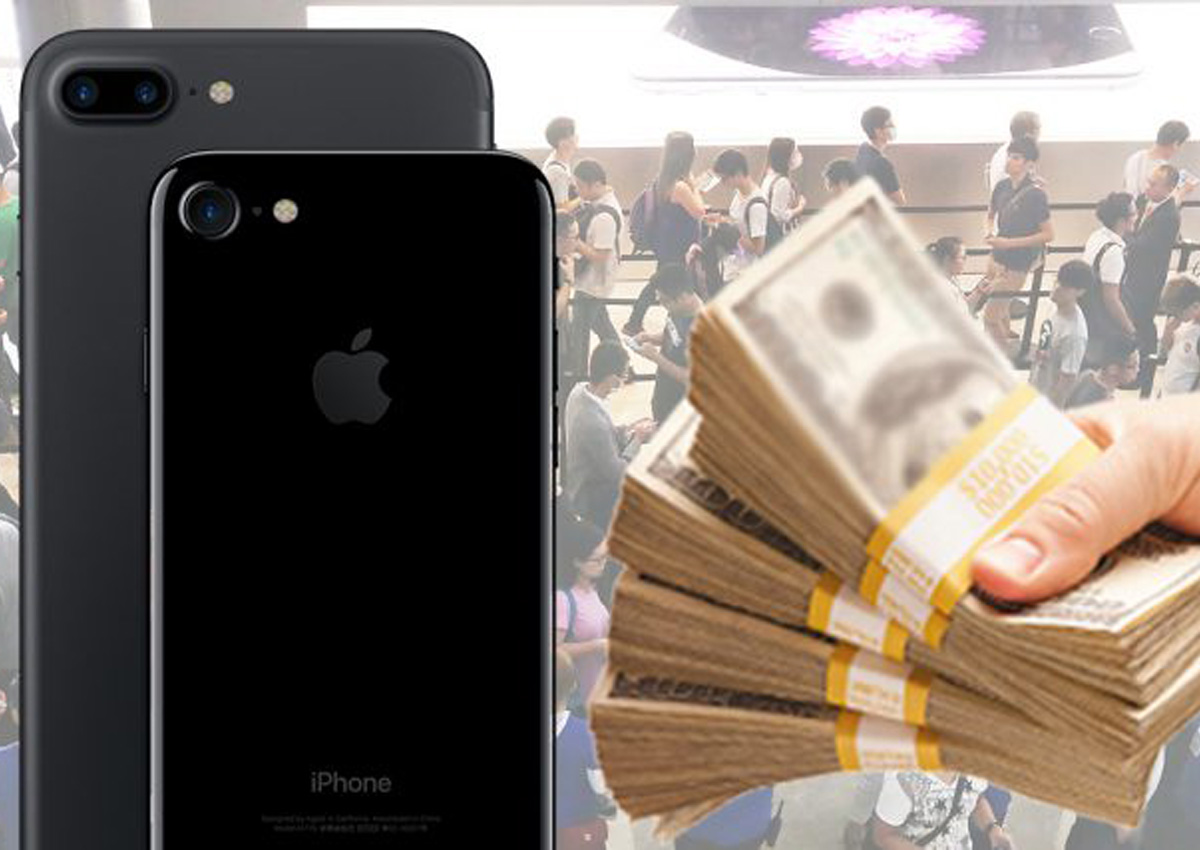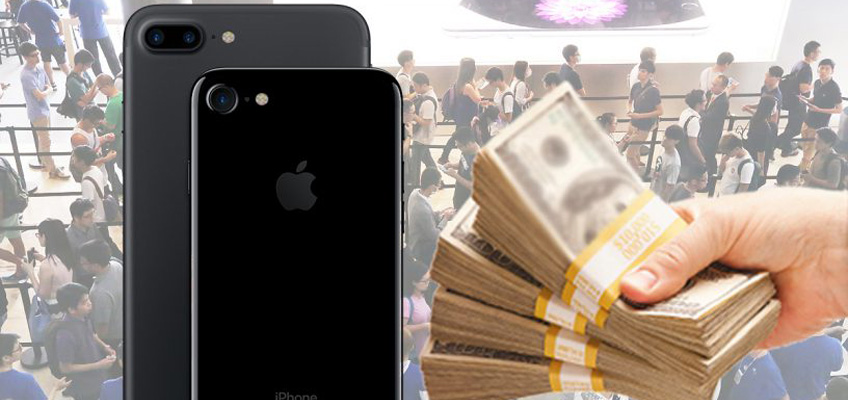The iPhone circus is back in town.
Last week, Apple held their annual keynote in San Francisco, and with it, announced the arrival of yet another new iPhone.
Along comes the pre-order period a few days later, and here we are today (Sept 16) when the phone will officially be in the hands of the Apple faithful.
“Get the iPhone online or risk not getting it at all” – that was Apple’s stance, as Techcrunch found out, when asked about the allotment to walk-in customers at Apple Stores.
This comes in the midst of another statement saying that the fingerprint- and scratch-prone Jet Black model will only be released in limited numbers for the initial batches.
Back in Singapore, those hoping to get their grubby paws on Apple’s latest toy flooded the websites of our three telcos on booking day – and unhappiness and massive disappointment ensued.
Singtel was plagued with technical difficulties due to their ordering site not being able to cope with the web traffic.
This caused a full day of delay before customers can log in again.

The common thread among Singtel, M1 and Starhub though, is the inability of customers to get the phones of their choice, if anything at all.
On top of Apple’s confirmation that initial batches are in limited quantities, local telcos have also confirmed that shipment for certain models have been delayed on Apple’s end and will not be available on launch day.
This, of course, caused unrest amongst a lot of people.
Queuing for profits
While queues for Apple products in Singapore are still quite tame as compared to those in the USA, we are still a nation who will queue for anything that people deem worth their time.
From clearance sales to, in this case, products with some level of exclusivity, Singaporeans from all walks of life can be seen queuing not just overnight, but sometimes even days in advance.

For the iPhone 7, people had started waiting at some telco outlets and official Apple resellers as early as on Thursday morning, first forming “unofficial” queues until mall management started putting up barricades at the various stores for them to wait in.
But here’s the kicker, the iPhone as a commodity is still a somewhat big business, and Singapore is always fortunate enough to always be on the list of countries to get it first.
While it means that Singaporeans are in line to be one of the first in the world to get their hands on Apple’s latest, it also means that neighbouring countries who are not getting it at the same time will clamour for it.
This can happen two ways – someone here is exporting it to them, or people are actually flying into Singapore to get it.
Picture this, in places like Hong Kong, their Apple Stores actually have a quota for how many iPhones can be sold in a day.
Channel NewsAsia yesterday interviewed a Vietnamese lady who has especially flew into Singapore just to get a hold of the new iPhone 7, citing that she could sell it back home for at least S$3,000.
Though no specific model was mentioned, it’s assumed she got the most sought-after one – the 256GB black iPhone 7 Plus that costs $1,588 on the Apple Store.
A profit of roughly $1,400 is a pretty penny, though we haven’t accounted for how much she spent travelling here. With the current shortage of supply from Apple, she is sure to earn much more from the sale anyway.
Now imagine if it was a Singaporean selling the phone and getting that kind of money.
The Vietnamese woman is just one individual. When we’re talking about bulk resellers, these profits are amplified.
The keen-eyed of you who have been to iPhone launch events may have noticed shady people with stacks of cash lurking around, offering to buy your phones.
These people are, more often than not, exporters or working for one.
It’s distasteful but not unlawful
The iPhone-reselling industry is much like the underground clothing reselling industry, where products – by brands such as Supreme – could go for as much as ten times its original value due to its limited quantities.
These iPhone resellers are paying people to queue for them, or buying phones off strangers looking to sell.
This means that those who genuinely want the phone are unfairly frozen out.
At the start, there will always be a mad rush to be the first to own one at all costs, despite the fact it is common knowledge that by year’s end, there will most definitely be enough iPhones of every colour to go around for everyone to buy – FOMO (fear of missing out) at its finest at work.
I will admit that I used to be on that bandwagon of timing my re-contract period to the month of September, when iPhones are traditionally launched.
Looking back, the time and effort to camp online waiting for the bookings to open, or having to brave the queues at Marina Bay Sands at the Singtel collection area definitely doesn’t justify the purported “profits”.
I will be taking a laid-back approach to any new iPhone from this year – I’ll watch all the drama during the launch, and then leisurely order one for myself from the Apple Store online a few months later.
This article was first published on Sept 16, 2016.
Vulcan Post is all about living life with a digital edge, up and coming startups, and people who inspire conversations.
Visit Vulcan Post for more stories.
See also:
- iPhone 7 ‘seller’ scams a dozen of more than $10,000
- Fans cheer, but Asia gives iPhone 7 subdued welcome
- Singtel mobile users to pay extra ‘admin fee’ when recontracting





























































